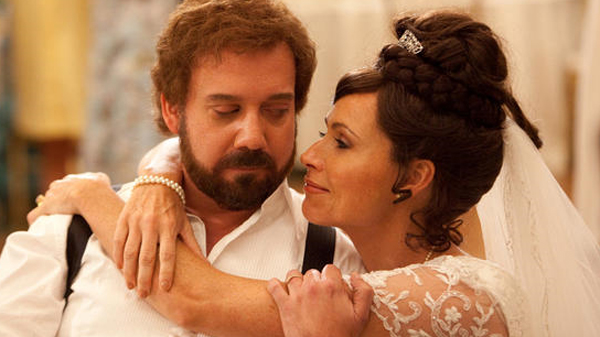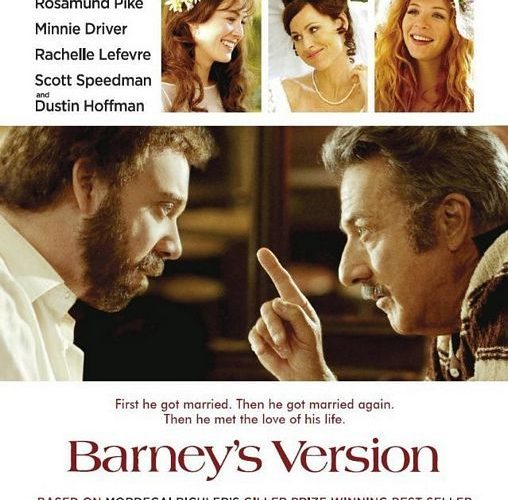
Making a “life’s journey” film must be difficult. The difficulty shows through the messy Barney’s Version. But despite its rocky structure, this adaptation of Mordecai Richler’s acclaimed novel makes for a surprisingly compelling and entertaining dramedy, warts and all.
Most of the film’s success lies on the shoulders of its star, Paul Giamatti. Giamatti, as the titular character Barney Panofsky, bears a performance full of heart and commitment. Barney may not go down as a classic performance in Giamatti’s career, which there are many of, but it’s a tricky character that he slips right into. On paper, he could pass off as a total schmuck. And yet, even with his galore of flaws, it’s difficult not to connect and feel sympathy for this tragic figure.
Giamatti gives an absolute sense of where this guy has been and how he feels. Barney is someone that never shuts his trap and can’t help but spout every sarcastic remark he can think of. This level of cynicism will divide sympathizers, of which I am one. But still he’s more abrasive; there is a distinct anguish and sadness underneath him.
Barney’s first wife was a druggy hippy, and she pretty much fits the bill of what you expect from that persona. His second wife (played in a ludicrous manner by Minnie Driver) could not be more annoying and artificial – basically the opposite of Barney. Not until his third wife does he seem to find happiness. During Barney’s second wedding he discovers Miriam (Rosamund Pike), who is what one would call an utter “knockout.” The latter half of the film follows most of their marriage, and that’s where the film starts to stumble.
Following all the women and marriages of Barney’s life sounds like a storyline far more suitable for a miniseries, and it probably would have worked far better in that format. There is simply far too much story for this film to contain, even with its over 2-hour running time. There is a murder mystery, involving Barney’s best friend (played charmingly by Scott Speedman). There is a touching father-son relationship (Dustin Hoffman filling the shoes of the father). And there is also focus on Barney’s unfulfilling soap opera television career. The film runs nice and smooth with all these chunks for the first two acts, but then this overstuffed story starts to run its course.
The disjointed narrative gives hints of a grander and longer story hidden somewhere in a dark editing room, and hopefully one day – if there’s money to restore a longer cut – we can see that fuller and more satisfying version. As it stands now, Barney’s Version is two acts of a memorable film with a saving grace performance at the center of it. Giamatti finds a unique heart through this mess, and an entertaining one at that.

Have you heard of Barney’s Version? The novel? Will you see it?

